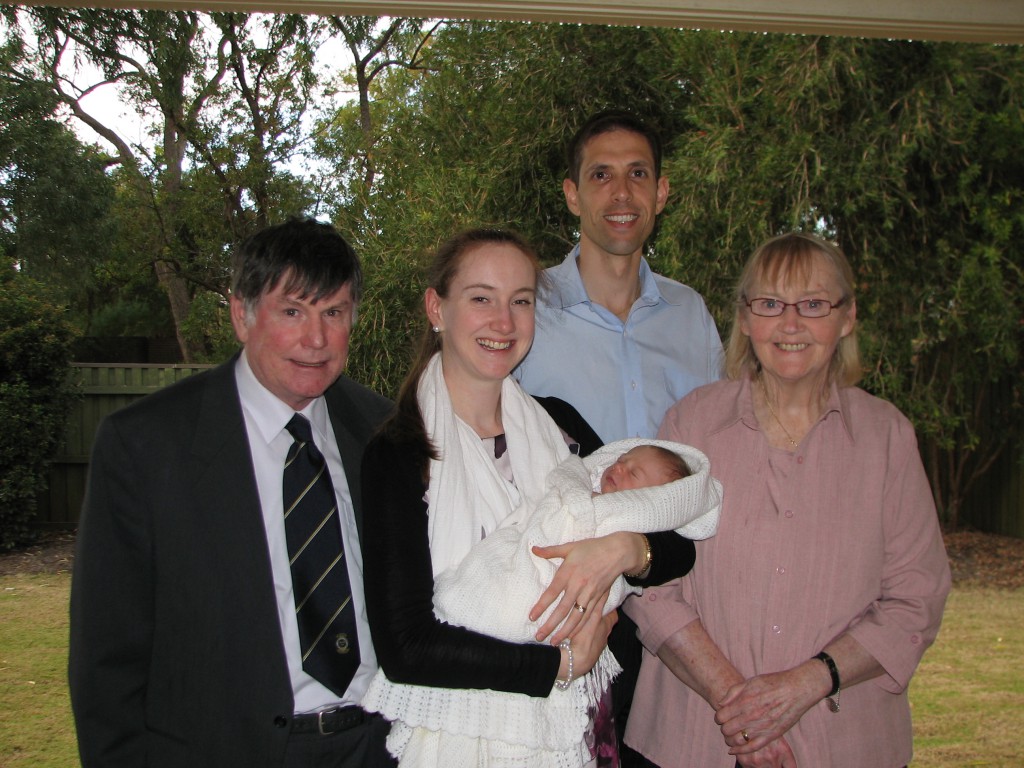
One per cent of the population suffers from schizophrenia and one per cent has a PhD, so that makes Willetton parishioner Dr Robert Williams, who has both, a very rare man indeed.
Describing himself as “a person who has been given the cross of a mental illness”, Robert has achieved much in his 68 years and is passionate in his desire to encourage others not to allow their condition to prevent them from living a rewarding life.
Robert, who has been diagnosed with schizoaffective disorder (a variant of schizophrenia and bi-polar disorder), has a diploma in computing, a BA in maths and economics, a Master of Information Systems degree, and a PhD in Automated Essay Grading; has lectured and researched at university level; has recently become a grandfather; and is determined to alter perceptions of mental illness, within and outside the Church.
“If someone like myself does not articulate the problems mental health sufferers face, and shows that mentally ill people are not weird, but have the same needs and aspirations as others, and can have a successful working life given the right support, then the stigma associated with mental illness will remain,” he told The Record.
Dr Williams was raised in what he describes as a “very traditional Catholic family of the 50s and 60s”, actively participating in parish life at St Benedict’s in Applecross.
But despite his high academic achievement during teenage years, Robert began perceiving a sense of loneliness infiltrating his life. He became more introverted – often a precursor to schizophrenia – once he began university, causing him to fail his first year.
This “social inadequacy” continued into his third year, eventually resulting in his first incident of full-blown schizoaffective disorder at the age of 21.
However, his illness remained undiagnosed for the next seven years as he wandered from job to job. In 1973, he was admitted to Heathcote Hospital where he stayed for four months, undertaking a process of electro-convulsive therapy and anti-psychotic medication.
This was to be the first and longest of six episodes of hospitalisation throughout his life. He acknowledges there are people who do not endorse using medication but, having suffered the effects of untreated symptoms, he is in full support of the practice and is particularly pleased with the early intervention medications now in use.
Robert describes the results of his time at Heathcote with a sense of excitement. “I do not think one can understand the enormous relief this brought to me unless they have experienced the phenomena,” he explained. “Suddenly, I could see a future.”
This new life meant his thoughts began to “behave themselves”, leading to normal relationships and emotions and an alleviation of the persistent guilt that had dogged him for so long.
“I remember thanking God for my recovery, and saying I did not know why he had permitted my illness to occur, but together let us see what the future had in store,” he said.
Despite the difficulties and challenges, Robert’s faith always remained. He now sees his experience as drawing him closer to God and through prayer, the Bible and the writings of saints such as Teresa of Avila and John of the Cross, he has become a firm believer that suffering can draw one closer to Christ.
“I had nowhere else to turn,” he said. “No human was capable of healing me… only God could help.”
He was able to accept the fact that while he did not receive any miraculous cures he did receive the grace to accept his situation and believes the successful response to medication was an answer to his and his family’s prayers.
“The illness has made me very compassionate and less judgemental, as I realise things can happen in a person’s life beyond their control,” he said.
Robert has presented his story to both Church and secular groups, most recently to almost 100 people at Sts John and Paul Parish in Willetton, where he has been a parishioner for 30 years.
He was delighted with the response and the level of interest within the Catholic community and hopes that one day a Catholic mental health hospital could be established, allowing treatment to occur within the framework of the Church’s spirituality.
Robert is proud of his achievements and hopes his example may provide inspiration to others who have also been given the cross of mental illness and for their families.
“It is often harder for the caregivers than the patient,” he said, acknowledging the positive influence of his family during his journey. “I am eternally grateful to Therese for marrying me,” he said.
“My life turned around enormously after we were married. I am also very grateful to Claire who accepted the fact that her dad had a mental illness. I have never heard her complain about it. They are both very special people.”